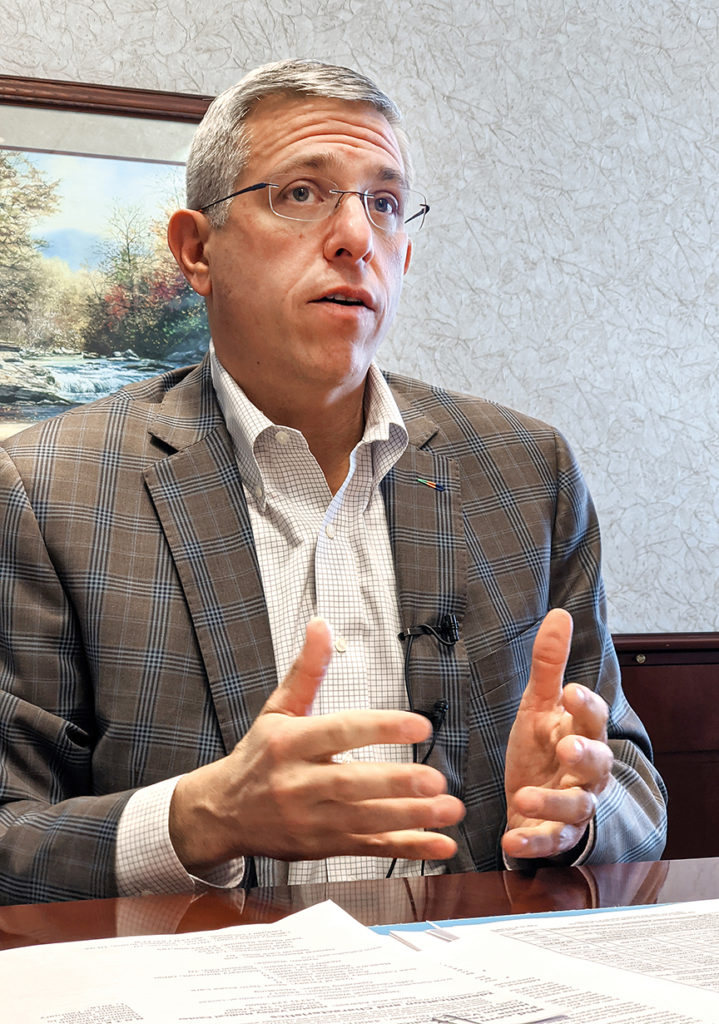
Ballad Health CEO Alan Levine testified before a congressional subcommittee on Tuesday as the U.S. House of Representatives prepares to consider several pieces of legislation aimed at improving healthcare.
The subcommittee was conducting a legislative hearing entitled “Caring for America: Legislation to support Patients, Caregivers and Providers.” Testifying remotely, Levine focused in part on the critical nature of the national nursing shortage and the impact of the workforce issues on rural and non-urban communities.
Following Levine’s testimony, ETSU President Dr. Brian Noland issued a statement on the workforce shortage in the healthcare sector, pointing to a joint initiative announced Monday between ETSU and Ballad Health as a potential solution to nursing shortages in our region.
“Having observed the United States Congress’ hearing on the health workforce shortage today, it is more clear to me than ever that yesterday’s announced partnership between ETSU and Ballad Health in creating the Appalachian Highlands Center for Nursing Advancement is more important than ever. Ballad Health’s CEO, Alan Levine, clearly articulated the challenges for regions of America like ours which are adversely affected by the national shortage of nurses. I am proud that ETSU and Ballad Health are partnering to help find a national solution to this problem.”
Ballad Health has committed $10 million to the new center in hopes of partnering with ETSU to bring nursing, business, liberal arts, education and other academic and support programs together to create a robust pipeline of nurses and nursing support to our region.
Even prior to the novel coronavirus (COVID-19) pandemic, the nation faced a shortage of nurses, with more than 1 million nurses expected to retire before 2030, according to a recent study.
Combining this with the historically high acuity of hospitalized patients creates a high-stress situation for practicing nurses, leading to burnout and higher turnover rates.
“Our nurses and their direct support teams, such as certified nursing assistants, licensed practical nurses and the other allied health professionals who care directly for patients are the heart of the healthcare team,” said Ballad Health Chairman and Chief Executive Officer Alan Levine. “The dynamics of the nursing profession have changed so much, becoming even more complex because of the challenges of the pandemic. We now seek to learn from our nurses what we need to do to evolve to better support the needs of our nursing teams and enhance their resilience in a very difficult environment, and partnerships with these regional institutions of higher education within the Appalachian Highlands are just the beginning of this collaborative effort to invest in healthcare workforce development.”
Not only will the Center work with current nurses and nursing students, but it will also seek to attract more students to the nursing profession. The Center will partner with other institutions to develop a common pipeline for high school students to identify those with aptitudes for the sciences and help match them with employment and pathways to certification as a nursing support professional or for a nursing degree. These programs could match students with jobs within Ballad Health while they’re in high school, which provide a path to certification by their high school graduations, linking them with the possibility of scholarships for nursing degrees, as well as employment opportunities within Ballad Health.



